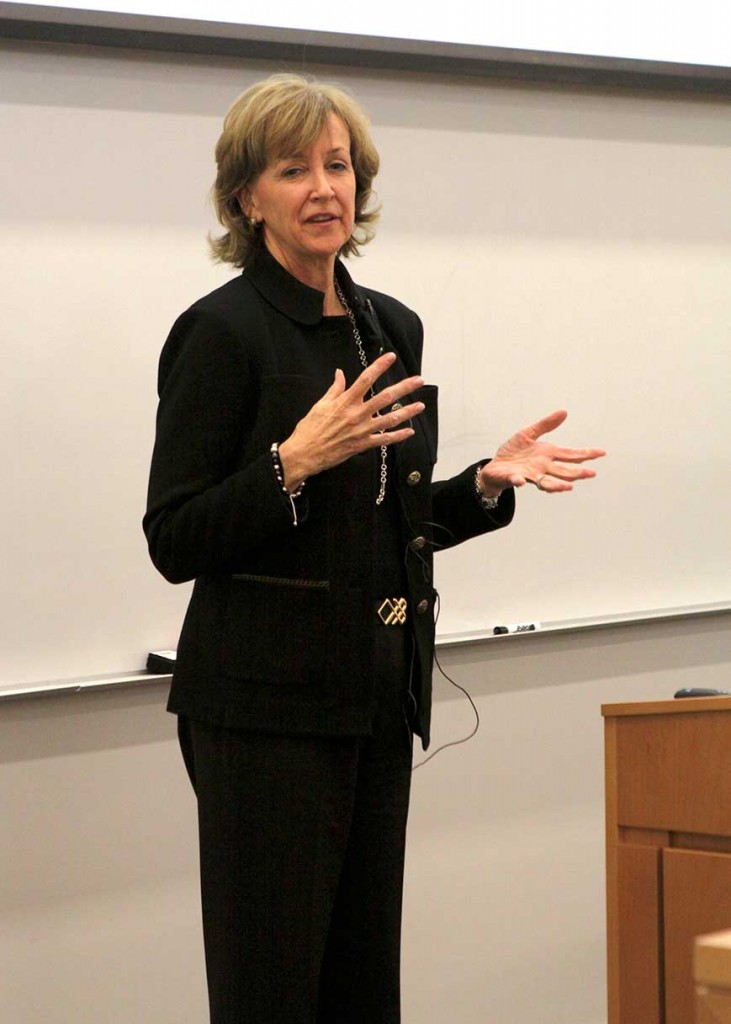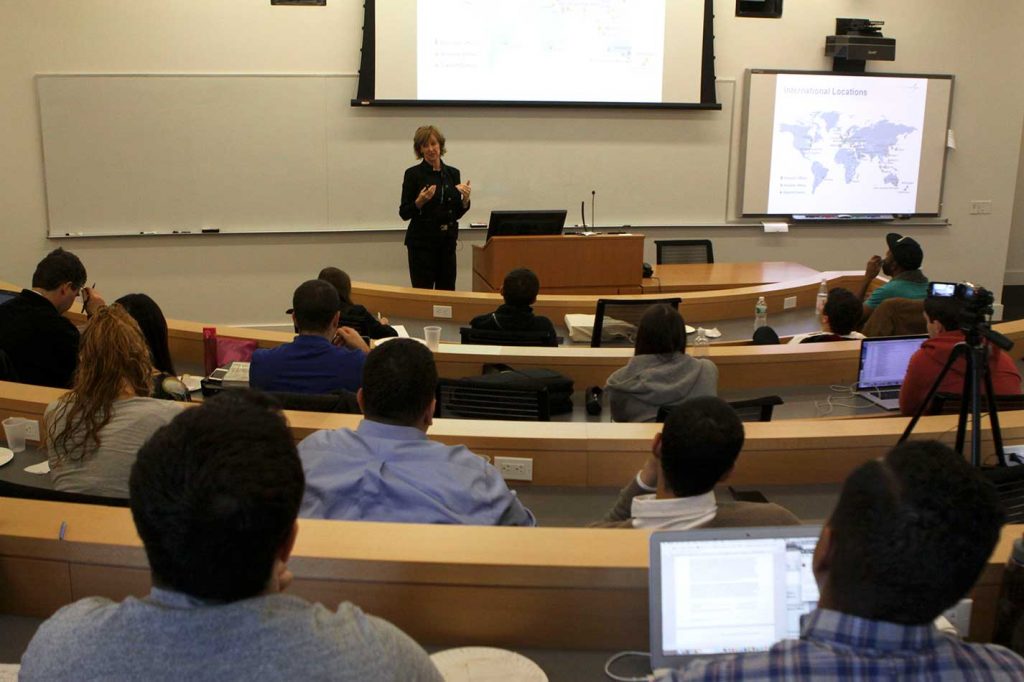
If you want to get a legal job at Lockheed Martin, be prepared to answer five very important interview questions.
On Nov. 18, Maryanne Lavan, general counsel/senior vice president at the Washington D.C.-based defense contract company and a member of the University’s President’s Council, shed some light on those questions for aspiring lawyers at Fordham Law School.
-What did you do in the first 90 days of your last job?
(Her Answer: Worked with former colleagues who she now supervises.)
-What’s been your biggest challenge?
(Her Answer: Leading an ethics investigation against a colleague.)
-How would people who work for you describe you?
(Her Answer: Hardworking, but a nice person.)
-What’s one area you’d like to improve, and what are you doing about it?
(Her Answer: Self doubt.)
Why should we hire you?
(Her Answer: “It’s my privilege to work for the corporation, and that’s the way I approach it every day.”)
Lavan, who oversees 115 lawyers at a company with 113,000 employees in 70 countries, was there as part of the college’s Business Law Practitioner Series. She emphasized the importance of qualities such as humility and remembering one’s roots, as one makes his way up the corporate ladder.
“I’m so fortunate to have the career that I’ve have, and I couldn’t have had it without my family and the people who’ve helped me along the way,” she said.
“I’d like you to think about this in five, 10, 15 years, and find a way to give back, because there will be people who will help you along the way.”
She ascended to her current position in 2010, after serving as corporate secretary, and before that, president, internal audit. (She initially lost the position to James Comey, who went on to become head of the FBI. She applied again.) Her job entails everything from mergers and acquisitions, compliance issues such as Sarbanes-Oxley, securities filings, employment issues, and intellectual property law, which she said was a growing area of law.
The one major area that Lockheed/Martin does not do is in-house is litigation, she said, because to do it effectively, you have to do it consistently.
“I feel sometimes like it’s an inch deep and a mile wide. I used to be more in-depth . . . to know a ton about government contracts . . . a ton about litigation. Now I know a little about everything,” she said.
Besides humility, other leadership values that topped her list included empathy, authenticity, good humor, a can-do attitude, and resiliency.
In fact, she said she witnessed a perfect example of people who didn’t understand “empathy” when her train broke down en route to New York from Washington D.C that morning, delaying her talk at Fordham by 20 minutes.
“There were people on the train today who were really upset, and they were yelling not at the conductor but at the person who had been serving us food. He had nothing to do with it,” she said.
“Sometimes as you progress in your career, you’ll see that kind of ethos in people. That’s not how I like to operate.”
Finally, she offered advice for where to seek out employment: Read the annual reports, listen to the earnings calls, and learn all you can about the board of directors at the company you want to work for.
And when you do get a job and you’re filing papers, check, recheck, and triple check the filing deadline.
“I say this to my children. Proof, reproof, proof again, and edit strongly. It’s easy to write a long paper, it’s a lot harder to write a short, concise paper,” she said.

